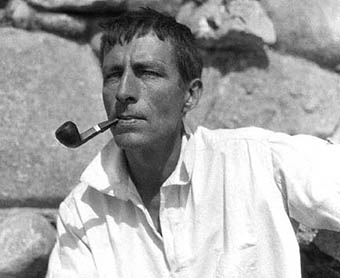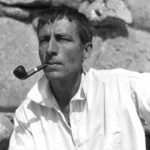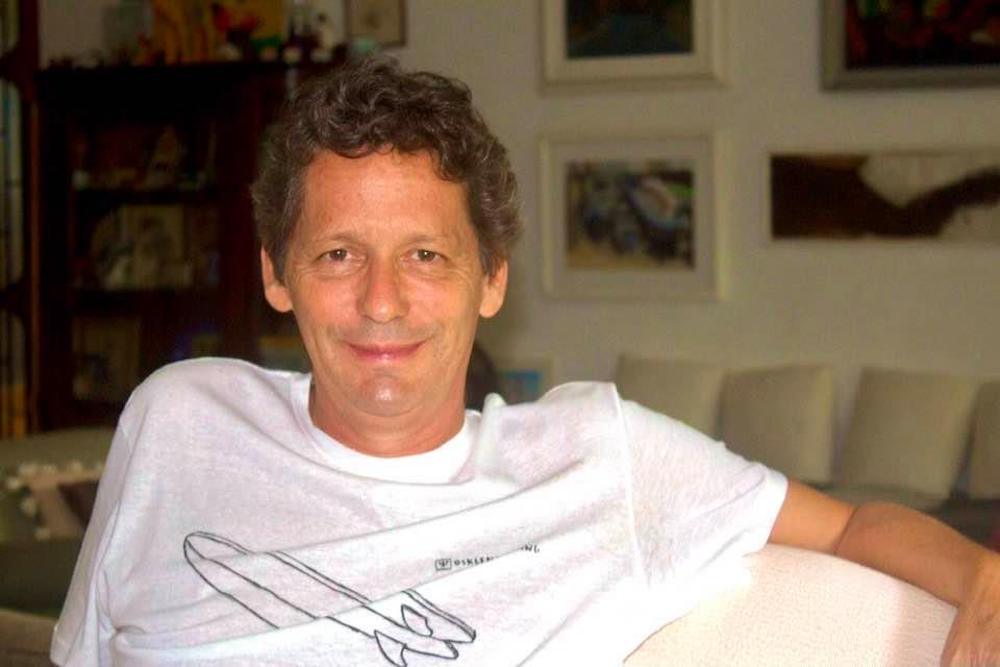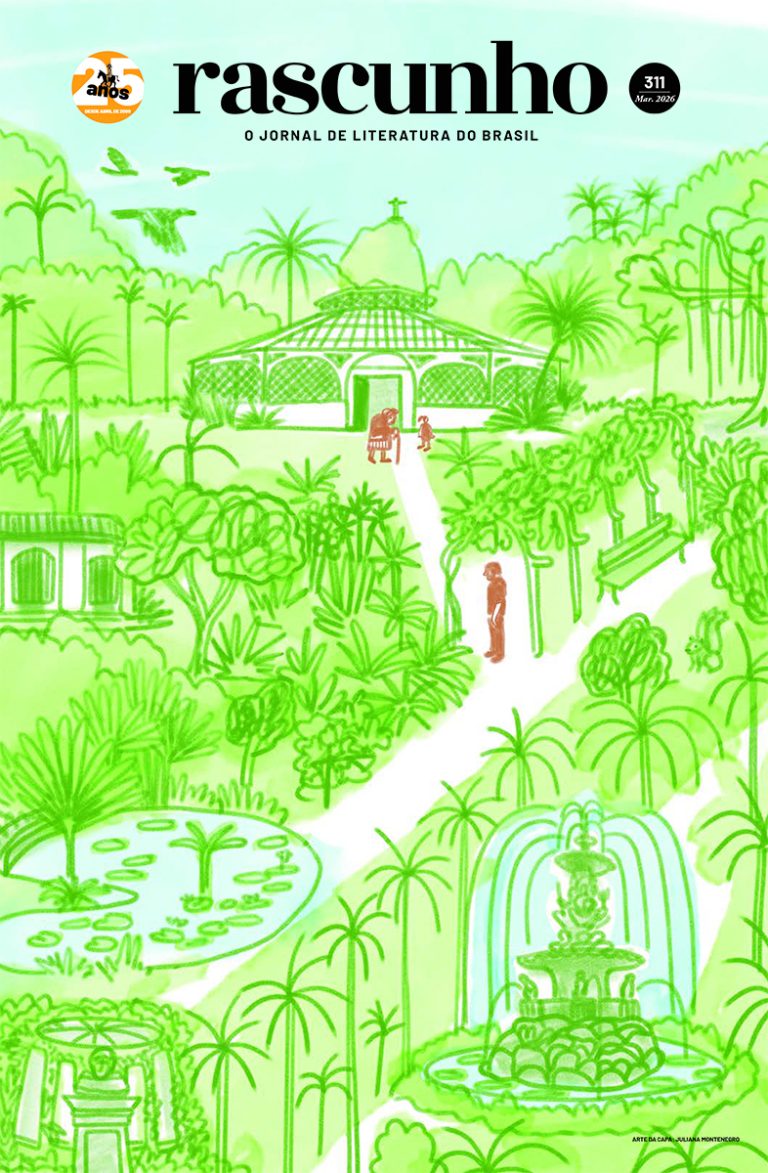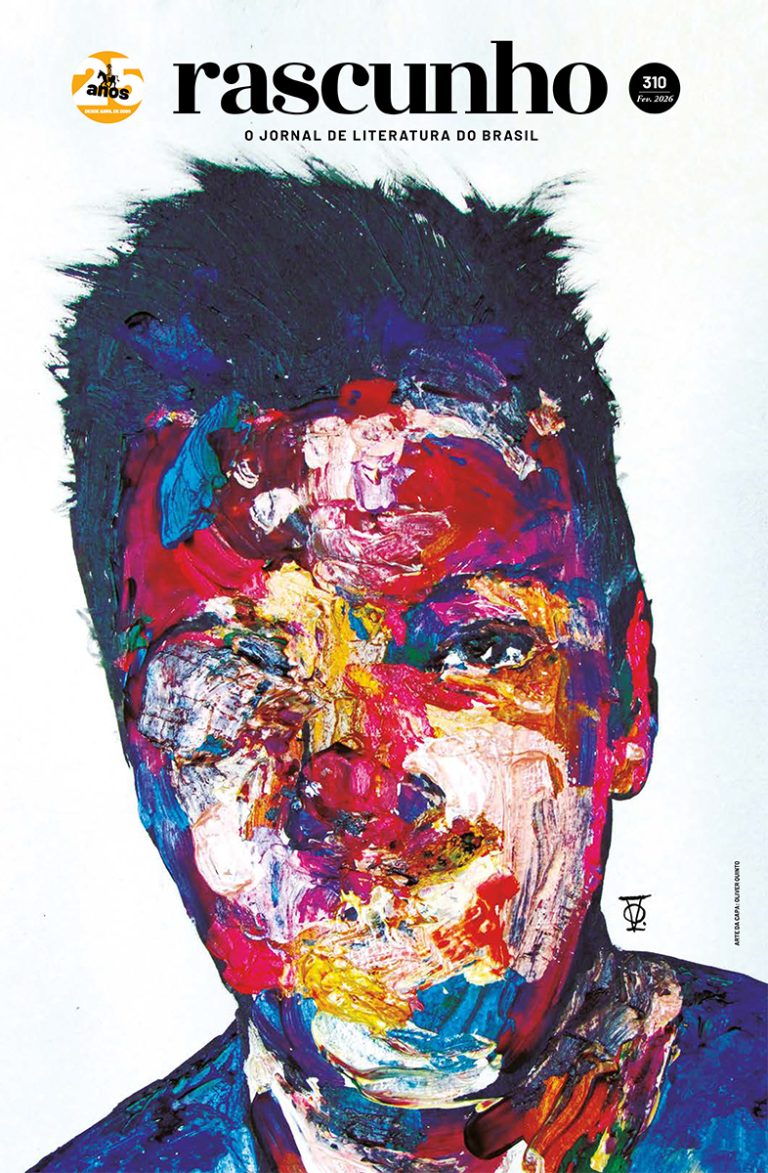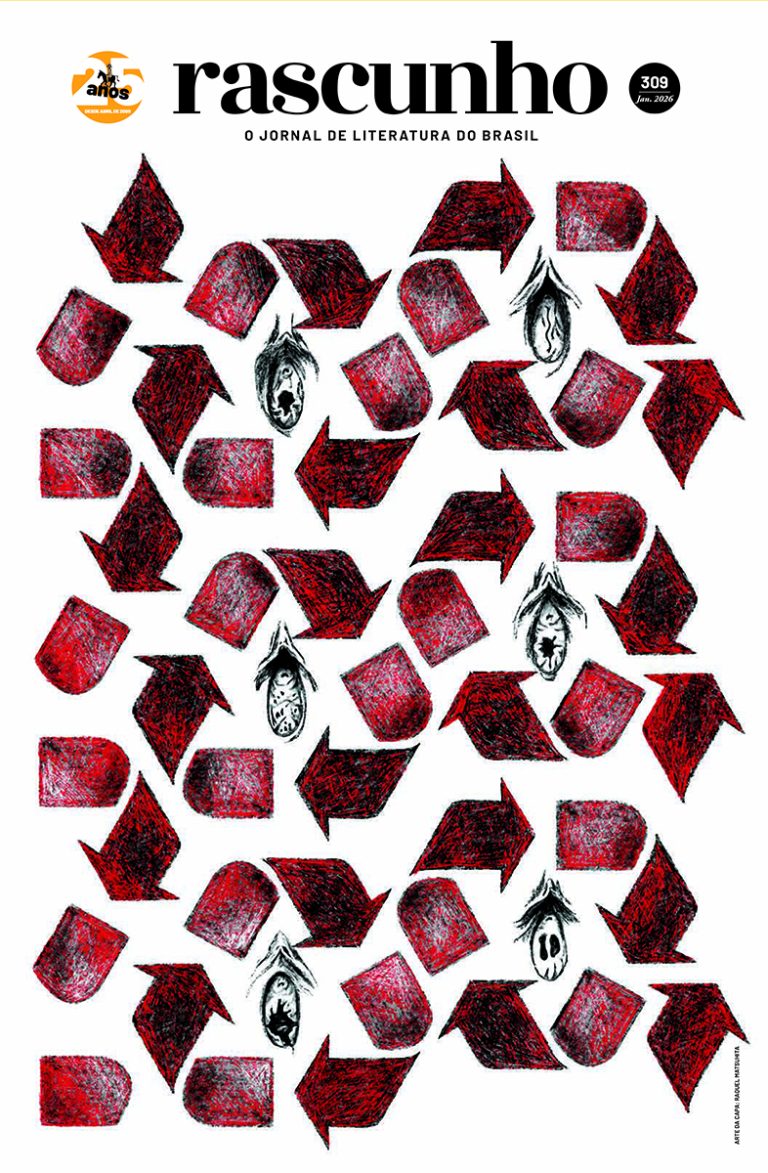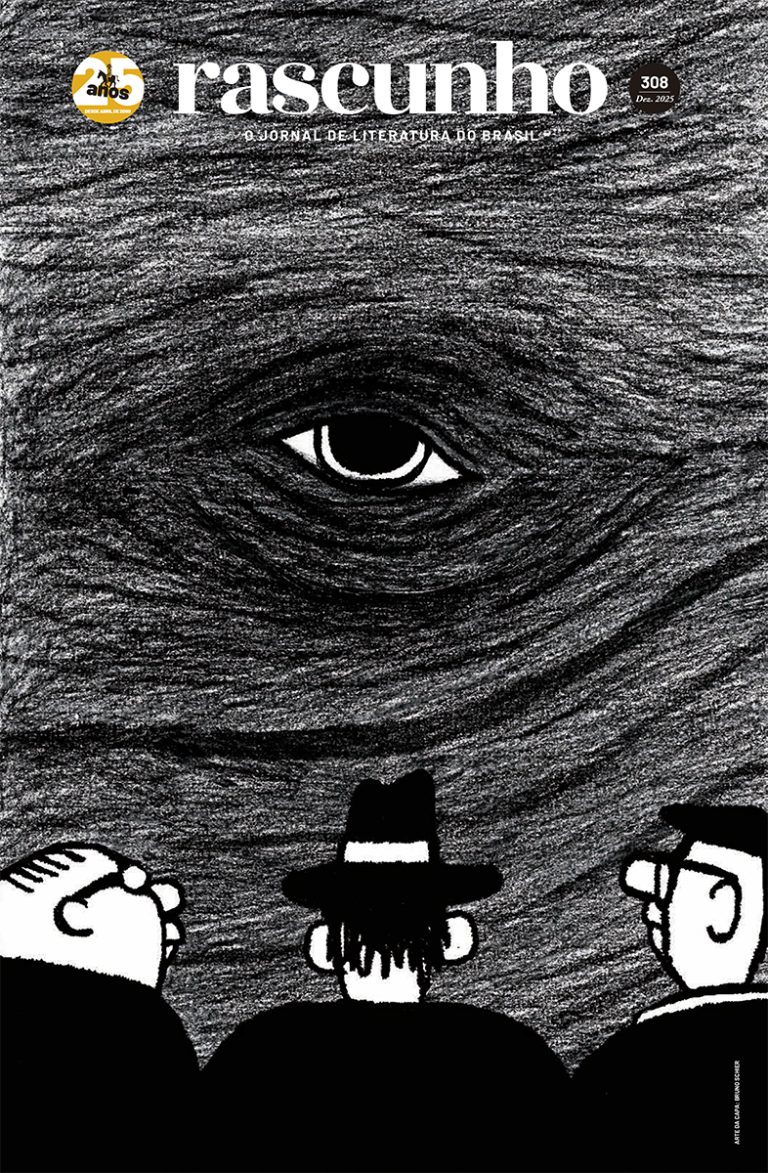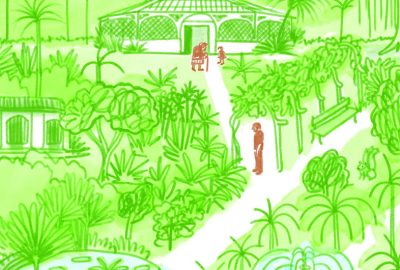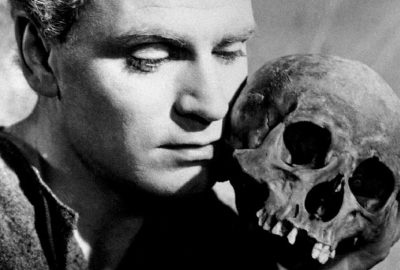Tradução e seleção: André Caramuru Aubert
THE BEAUTY OF THINGS
To feel and speak the astonishing beauty of things — earth, stone and water,
Beast, man and woman, sun, moon and stars —
The blood-shot beauty of human nature, its thoughts, frenzies and passions,
And unhuman nature is towering reality —
For man’s half dream; man, you might say, is nature dreaming, but rock
And water and sky are constant — to feel
Greatly, and understand greatly, and express greatly, the natural
Beauty, is the sole business of poetry.
The rest’s diversion: those holy or noble sentiments, the intricate ideas,
The love, lust, longing: reasons, but not the reason.
A BELEZA DAS COISAS
Para sentir e falar a impressionante beleza das coisas — terra, pedra e água,
Fera, homem e mulher, sol, lua e estrelas —
A beleza cor de sangue da natureza humana, seus pensamentos, frenesis e paixões,
E natureza não humana é realidade que se ergue —
Para o homem, meio sonho; o homem, você poderia dizer, é a natureza sonhando, mas rochas
E água e céu são permanentes — grandiosamente
Sentir, e grandiosamente compreender, e grandiosamente expressar, a beleza
Natural, é o propósito único da poesia.
O resto é distração: aqueles sentimentos sagrados ou nobres, as ideias intrincadas,
O amor, o desejo, a saudade: razões, mas não a razão.
…..
UNTITLED
It nearly cancels my fear of death, my dearest said,
When I think of cremation. To rot in the earth
Is a loathsome end, but to roar up in flame — besides, I am used to it,
I have flamed with love or fury so often in my life,
No wonder my body is tired, no wonder it is dying.
We had great joy of my body. Scatter the ashes.
SEM TÍTULO
Isto quase anula meu medo de morrer, meu amor falou,
Quando eu penso em cremação. Apodrecer na terra
É um fim abominável, mas arder em chamas — além disso, estou habituada,
Eu ardi com amor ou fúria tanto em minha vida,
Não à toa meu corpo está cansado, não à toa está morrendo.
Nós fomos felizes com meu corpo. Espalhe as cinzas.
…..
VULTURE
I had walked since dawn and lay down to rest on a bare hillside.
Above the ocean, I saw through half-shut eyelids a vulture wheeling high up in
heaven,
And presently it passed again, but lower and nearer, its orbit narrowing, I
understood then
That I was under inspection. I lay death-still and heard the flight-feathers
Whistle above me and make their circle and come nearer. I could see the naked
red head between the great wings
Beak downward staring. I said “My dear bird we are wasting time here.
These old bones will still work; they are not for you.” But how beautiful he’d
looked, gliding down
On those great sails; how beautiful he looked, veering away in the sea-light over
the precipice. I tell you solemnly
That I was sorry to have disappointed him. To be eaten by that beak and become
part of him, to share those wings and those eyes —
What a sublime end of one’s body, what an enskyment; what a life after death.
CONDOR
Eu havia caminhado desde o amanhecer e me deitei para descansar numa
encosta pelada de montanha.
Sobre o oceano eu vi, com meus olhos semicerrados, um condor voando
em círculos, no céu,
E agora ele passou de novo, mais baixo e mais perto, sua órbita estreitando, e eu
então compreendi
Que estava sendo inspecionado. Eu me deitei imóvel e ouvi as penas das asas
Assobiando sobre mim e fechando o círculo, e chegando mais perto. Eu pude ver
a cabeça vermelha careca entre as grandes asas
O bico para baixo, me encarando. Eu disse “Meu querido pássaro, você está
perdendo o seu tempo comigo.
Estes velhos ossos ainda podem trabalhar; eles não são para você.” Mas que
bonito ele era, planando, em descida
Naquelas grandes velas; que bonito ele era, mudando de direção na luz do mar
sobre o precipício. Eu solenemente afirmo
Que fiquei chateado por tê-lo desapontado. Ser devorado por aquele bico e me
tornar parte dele, compartilhar aquelas asas e aqueles olhos —
Que sublime fim para o corpo, que elevação; que vida, após a morte.
…..
NEW MEXICAN MOUNTAIN
I watch the Indians dancing to help the young corn at Taos pueblo. The
old men squat in a ring.
And make the song, the young women with fat bare arms, and a few
shame faced young men, shuffle the dance.
The lean-muscled young men are naked to the narrow loins, their breasts
and backs daubed with white clay.
Two eagle-feathers plume the black heads. They dance with reluctance, they
are growing civilized; the old men persuade them.
Only the drum is confident, it thinks the world has not changed; the
beating heart, the simplest of the rhythms,
It thinks the world have not changed at all; it is only a dreamer, a brainless
heart, the drum has no eyes.
These tourists have eyes, the hundred watching the dance, white Americans,
hungrily too, with reverence, not laughter;
Pilgrims from civilization, anxiously seeking beauty, religion, poetry;
pilgrims from the vacuum.
People from cities, anxious to be human again. Poor show how they suck
you empty! The Indians are emptied,
And certainly there was never religion enough, nor beauty or poetry here
… to fill Americans.
Only the drum is confident, it thinks the world has not changed.
Apparently only myself and the strong
Tribal drum, and the rock-head of Taos mountain, remember that
civilization is a transient sickness.
MONTANHA NO NOVO MÉXICO
Eu observo os índios dançando pelo milho recém-plantado no pueblo de Taos.
Os velhos formam um círculo.
E cantam, e as mulheres jovens com os braços gordos à mostra, com alguns
jovens envergonhados, levam a dança.
Os magros e musculosos jovens estão nus até os quadris, seus peitos
e costas cobertos com barro branco.
As penas de duas águias emplumam as cabeças negras. Eles dançam relutantes,
eles crescem civilizados; os velhos os persuadem.
Só o tambor é confiante, ele pensa que o mundo não mudou; a
batida do coração, o mais simples dos ritmos,
Ele pensa que o mundo não mudou nada; ele é apenas um sonhador, um
coração sem cérebro, o tambor não tem olhos.
Estes turistas têm olhos, os cem assistindo à dança, americanos brancos,
sedentos também, com reverência, sem achar graça;
Peregrinos da civilização, ansiosamente buscando beleza, religião, poesia;
peregrinos vindos do vácuo.
Pessoas das cidades, ansiosas para serem humanas de novo. Pobre espetáculo
como eles te sugam até o vazio! Os índios estão esvaziados,
E certamente jamais houve suficiente religião, nem beleza, ou poesia aqui
… para suprir os americanos.
Só o tambor é confiante, ele pensa que o mundo não mudou.
Aparentemente somente eu mesmo e o forte
Batuque tribal, e a cabeça rochosa da montanha Taos, se lembram de que
a civilização é uma doença transitória.
…..
SHANE O’NEILL’S CAIRN
to U.J.
When you and I on the Palos Verdes cliff
Found life more desperate than dear,
And when we hawked at it on the lake by Seattle,
In the west of the world, where hardly
Anything has died yet: we’d not have been sorry, Una,
But surprised, to foresee this gray
Coast in our days, the gray waters of Moyle
Below us, and under our feet
The heavy black stones of the cairn of the lord of Ulster.
A man of blood who died bloodily
Four centuries ago: but deaths’s nothing, and life,
From a high death-mark on a headland
Of this dim island of burials, is nothing either.
How beautiful are both these nothings.
A ESTELA DE SHANE O’NEILL[1]
Para U.J.
Quando você e eu, no penhasco de Palos Verdes
Achamos a vida mais triste do que doce,
E quando nós sobre ele voamos, no lago de Seattle,
No oeste do mundo, onde quase nada
Já morreu: nós não nos sentimos mal, Una,
Mas surpresos, em antever, esta cinzenta
Costa, em nossos dias, as águas cinzas do Moyle
Abaixo de nós, e sob nossos pés
As negras e pesadas rochas da estela do Senhor do Ulster.
Um homem de sangue que morreu no sangue
Quatro século atrás: mas a morte é nada, e a vida
Vista de um alto jazigo no pontal
Desta turva ilha de funerais, é nada, também.
Como são belos, ambos estes nadas.
…..
RETURN
A little too abstract, a little too wise,
It is time for us to kiss the earth again,
It is time to let the leaves rain from the skies,
Let the rich life run to the roots again.
I will go down to the lovely Sur Rivers
And dip my arms in them up to the shoulders.
I will find my accounting where the alder leaf quivers
In the ocean wind over the river boulders.
I will touch things and things and no more thoughts,
That breed like mouthless May-flies darkening the sky,
The insect clouds that blind our passionate hawks
So that they cannot strike, hardly can fly.
Things are the hawk’s food and noble is the mountain, Oh noble
Pico Blanco, steep sea-wave of marble.
RETORNO
Abstratos demais, sábios demais,
É tempo, para nós, de beijar novamente a terra,
É tempo de deixar que chovam desde o céu as folhas,
De deixar a rica vida correr para as raízes novamente.
Eu vou descer até os adoráveis rios Sur
E neles mergulhar meus braços, até os ombros.
Eu encontrarei minha importância, lá onde se enfeixam as folhas do carvalho
No vento oceânico sobre as rochas dos rios.
Eu tocarei coisas e coisas, sem mais pensamentos,
Que se procriem como libélulas sem boca, escurecendo o céu,
As nuvens de insetos que cegam nossos sedentos falcões
Deixando-os sem poder atacar, mal podendo voar.
Coisas que são a comida do falcão, e nobre é a montanha, Oh nobre
Pico Blanco, onda escarpada de mármore.
…..
OCTOBER WEEKEND
It is autumn still, but at three in the morning
All the magnificent wonders of midwinter midnight, blue dog-star,
Orion, red Aldebaran, the ermine-fur Pleiades,
Parading above the gable of the house. Their music is their shining,
And the house beats like a heart with dance-music
Because our boys have grown to the age when girls are their music.
There is wind in the trees, and the gray ocean’s
Music on the rock. I am warming my blood with starlight, not with girls’ eyes,
But really the night is quite mad with music.
FIM DE SEMANA DE OUTUBRO
É outono ainda, mas às três da manhã
Todas as magníficas maravilhas da meia-noite, do meio do inverno, a azul
Estrela do Cão,
E Órion, e a vermelha Aldebarã, e as Plêiades, pele de arminho,
Marchando por sobre o telhado da casa. Suas músicas são seus brilhos,
E a casa bate como um coração, com música dançante
Porque nossos filhos chegaram à idade na qual suas músicas são as garotas.
Há vento nas árvores, e na rocha, a música
Cinzenta do oceano. Eu esquento meu sangue com a luz das estrelas, não com
olhares de garotas,
E enlouquecida está a noite, com a música.
…..
THE SHEARS
A great dawn-color rose widening the petals around her gold eye
Peers day and night in the window. She watches us
Lighting lamps, talking, reading, and the children playing, and the dogs by the
fire,
She watches earnestly, uncomprehending,
As we stare into the world of trees and roses uncomprehending,
There is a great gulf fixed. But even while
I gaze, and the rose at me, my little flower-greedy daughter-in-law
Walks with shears, very blonde and housewifely,
Through the small garden, and suddenly the rose finds herself rootless in-doors.
Now she is part of the life she watched.
So we: death comes and plucks us: we become part of the living earth
And wind and water we so loved. We are they.
A TESOURA DE PODA
Uma grande rosa cor-de-amanhecer abre as pétalas em volta de seu olho
dourado
Dia e noite, na janela. Ela nos observa
Acendendo lâmpadas, falando, lendo, e as crianças brincando, e os cães junto
à lareira,
Ela observa ardentemente, sem compreender,
Assim como olhamos para o mundo das árvores e das rosas sem compreender,
Pois nos separa um golfo enorme. E então, enquanto
Eu encaro a rosa, e a rosa a mim, minha pequena nora, gulosa por flores
Caminha com a tesoura de poda, muito loira e donadecasamente,
Atravessando o pequeno jardim, e logo a rosa se vê sem raízes, dentro de casa.
Agora ela é parte da vida que observava.
E nós também: a morte chega e nos leva: nós nos tornamos parte da terra viva
E do vento, e da água, que tanto amamos. Nós somos eles.
…..
CLOUDS AT EVENING
Enormous cloud-mountains that form over Point Lobos and into the sunset,
Figures of fire on the walls of to-night’s storm,
Foam of gold in gorges of fire, and the great file of warrior angels:
Dreams gathering in the curded brain of the earth,
The sky the brain-vault, on the threshold of sleep: poor earth, you like your
children
By inordinate desires tortured make dreams?
Storms more enormous, wars nobler, more toppling mountains, more jewelled
waters, more free
Fires on impossible headlands… as a poor girl
Wishing her lover taller and more desirous, and herself maned with gold,
Dreams the world right, in the cold bed, about dawn.
Dreams are beautiful; the slaves of form are beautiful also; I have grown to
believe
A stone is a better pillow than many visions.
NUVENS AO ENTARDECER
Enormes nuvens montanhosas se formam sobre Point Lobos e, para dentro do anoitecer,
Imagens de fogo nos muros da tempestade que virá à noite,
Espumas de ouro em gargantas de fogo, e a grande linha dos anjos guerreiros:
Sonhos se encontrando no cérebro gelado da terra,
O céu, a abóbada, no portal do sono: pobre terra, você ama seus filhos
E de desejos desordenados, torturada, gera sonhos?
Tempestades maiores, guerras mais nobres, mais montanhas ruindo, mais águas cravejadas de joias, mais descontrolados
Fogos, em impossíveis istmos… como uma pobre garota
Querendo seu amante mais alto e mais desejoso, e ela mesma com cachos de ouro,
Sonha o mundo ideal, na cama fria, no quase amanhecer.
Sonhos são belos; os escravos da forma são belos também; eu cresci acreditando
Que uma pedra é travesseiro melhor que muitas visões.
…..
ON AN ANTHOLOGY OF CHINESE POEMS
Beautiful the hanging cliff and the wind-thrown cedars, but they have no weight.
Beautiful the fantastically
Small farmhouse and ribbon of rice-fields a mile below; and billows of mist
Blow through the gorge. These men were better
Artists than any of ours, and far better observers. They loved landscape
And put man in his place. But why
Do their rocks have no weight? They loved rice-wine and peace and friendship,
Above all they loved landscape and solitude.
— Like Wordsworth. But Wordsworth’s mountains have weight and mass, dull
though the song be.
It is a moral difference perhaps?
SOBRE UMA ANTOLOGIA DE POEMAS CHINESES
Belos os penhascos dependurados e os cedros arrancados pelo vento, mas eles
não têm peso.
Bela, a mágica e
Pequena sede de fazenda, com sua faixa de arrozais uma milha além; e as
nuvens
De vapor subindo pelos desfiladeiros. Aqueles homens eram melhores
Artistas do que qualquer um de nós, e muito melhor observadores. Eles amavam
a paisagem
E colocavam o homem em seu lugar. Mas por que
As suas rochas não têm peso? Eles amavam o vinho de arroz, a paz e a amizade,
Mais do que tudo eles amavam a paisagem e a solidão.
— Como Wordsworth. Mas as montanhas de Wordsworth têm peso e massa,
ainda que tediosa sua canção.
Será uma diferença moral, talvez?
…..
AUTUMN EVENING
Though the little clouds ran southward still, the quiet autumnal
Cool of the late September evening
Seemed promising rain, rain, the change of the year, the angel
Of the sad forest. A heron flew over
With that remote ridiculous cry, “Quawck,” the cry
That seems to make silence more silent. A dozen
Flops of the wing, a drooping glide, at the end of the glide
The cry, and a dozen flops of the wing.
I watched him pass on the autumn-colored sky; beyond him
Jupiter shone for every star.
The sea’s voice worked into my mood, I thought “No matter
What happens to men… the world’s well made though.”
TARDE DE OUTONO
Ainda que as pequenas nuvens tenham viajado para o sul, o calmo e outonal
Frescor de uma tarde de fins de setembro
Parecia promessa de chuva, chuva, a mudança de ano, o anjo
Da triste floresta. Uma garça passou voando
Com seu longínquo ridículo grito, “Quak,” o grito
Que parece tornar mais silencioso o silêncio. Uma dúzia de
Batidas de asas, um planeio inclinado, e no fim do planeio
O grito, e uma dúzia de batidas de asas.
Eu a observei passar pelo céu colorido do outono; e além dela
Júpiter brilhava, por cada estrela.
A voz do mar mexeu com meu ânimo, e eu pensei, “Não importa
O que aconteça com os homens… o mundo, afinal, foi bem-feito.”
…..
DISTANT RAINFALL
Like mourning women veiled to the feet
Tall slender rainstorms walk slowly against gray cloud along the far verge.
The ocean is green where the river empties,
Dull gray between the points of the headlands, purple where the women walk.
What do they want? Whom are they mourning?
What hero’s dust in the urn between the two hands hidden in the veil?
Titaness after Titaness proudly
Bearing her tender magnificent sorrow at her heart, the lost battle’s beauty.
CHUVA AO LONGE
Como mulheres enlutadas com véus até os pés
Altas e delgadas chuvas caminham lentamente contra a nuvem cinza, na borda
distante.
O oceano é verde onde deságua o rio,
Triste a cor cinza entre as pontas de terra, púrpura por onde as mulheres
caminham,
O que pretendem elas? A quem elas lamentam?
De que herói são as cinzas na urna entre aquelas duas mãos, sob o véu ocultas?
Titânica após Titânica, orgulhosamente
Carregando a delicada e magnífica tristeza em seu coração, a beleza da batalha
perdida.
[1] Shane O’Neill (1530-1567) foi um nobre irlandês que passou a vida toda envolvido em guerras e batalhas contra ingleses e outros clãs irlandeses, e numa delas, acabou capturado e morto. No suposto local de seu sepultamento, em Cushendum, atual Irlanda do Norte foi erigida em 1908 uma estela de pedra, visitada por Jeffers em 1929. O Moyle é o canal que separa, no norte, a Irlanda da Inglaterra.

